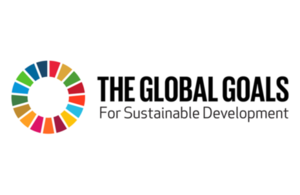What are the Global Goals?
On 25 September 2015, the United Nations will adopt 17 Global Goals to end extreme poverty and build a better world by 2030. But what are they?

The Global Goals
This is a historical news article from September 2015 about the foundation of the Global Goals.
See the latest information on how the UK is implementing the Global Goals (January 2019)
Video: Global Goals for a better world by 2030
The Global Goals will be adopted by 193 world leaders at the UN’s annual General Assembly – the main gathering of the United Nations.
These new goals build on the progress of the Millennium Development Goals (MDGs) set in 2000 – which have helped to halve poverty and improve living standards around the world over the past 15 years.
The aim of the Global Goals – also called the Sustainable Development Goals – is to finish the job of the MDGs over the next 15 years.
The Global Goals in full
- Goal 1: End poverty in all its forms everywhere
- Goal 2: End hunger, achieve food security and improved nutrition and promote sustainable agriculture
- Goal 3: Ensure healthy lives and promote well-being for all at all ages
- Goal 4: Ensure inclusive and equitable quality education and promote lifelong learning opportunities for all
- Goal 5: Achieve gender equality and empower all women and girls
- Goal 6: Ensure availability and sustainable management of water and sanitation for all
- Goal 7: Ensure access to affordable, reliable, sustainable and modern energy for all
- Goal 8: Promote sustained, inclusive and sustainable economic growth, full and productive employment and decent work for all
- Goal 9: Build resilient infrastructure, promote inclusive and sustainable industrialization and foster innovation
- Goal 10: Reduce inequality within and among countries
- Goal 11: Make cities and human settlements inclusive, safe, resilient and sustainable
- Goal 12: Ensure sustainable consumption and production patterns
- Goal 13: Take urgent action to combat climate change and its impacts*
- Goal 14: Conserve and sustainably use the oceans, seas and marine resources for sustainable development
- Goal 15: Protect, restore and promote sustainable use of terrestrial ecosystems, sustainably manage forests, combat desertification, and halt and reverse land degradation and halt biodiversity loss
- Goal 16: Promote peaceful and inclusive societies for sustainable development, provide access to justice for all and build effective, accountable and inclusive institutions at all levels
- Goal 17: Strengthen the means of implementation and revitalize the global partnership for sustainable development
The Global Goals follow 2 years of worldwide discussion, led by a United Nations high level panel, co-chaired by Prime Minister David Cameron.
The UK’s role in the Global Goals
Over the past 3 years the UK has lobbied hard to make sure the Global Goals cover the areas not covered by the MDGs, to make sure nobody is left behind:
- The UK successfully pushed for a stand-alone goal on gender equality, including targets on early and forced marriage, female genital mutilation, and - against strong resistance - sexual and reproductive rights.
- To lock in the economic progress made since 2000 and enable people to work towards their own prosperity the UK has helped secure a goal on peace, security and good governance: the building blocks of stable, successful societies.
- The UK has played a key role in creating a set of goals that are universal and inclusive; underpinned by a commitment to leave no one behind. These goals are focused on ending chronic poverty forever, for everyone, everywhere. The most marginalised and vulnerable people, whether disabled, hard to reach or affected by conflict, will not be left behind.
The UK will work to deliver goals in new and innovative ways, involving the best of British expertise through our health service, private sector and other government departments, through the hub of the Department for International Development.
Young people will be instrumental in delivering these goals and shaping the future. They have the power, commitment and energy to make sure the world leaders deliver on these promises when they sign up to the goals in New York.
The Youth Summit ahead of the event in New York allowed young people to get themselves heard on the global issues they care about. International Development Secretary Justine Greening will take these views to the UN, providing a platform for young people’s voices on the world stage.
The UK will continue to invest 0.7% of national income on aid and development and will continue to lobby for others to meet their aid obligations, including emerging and developing nations.